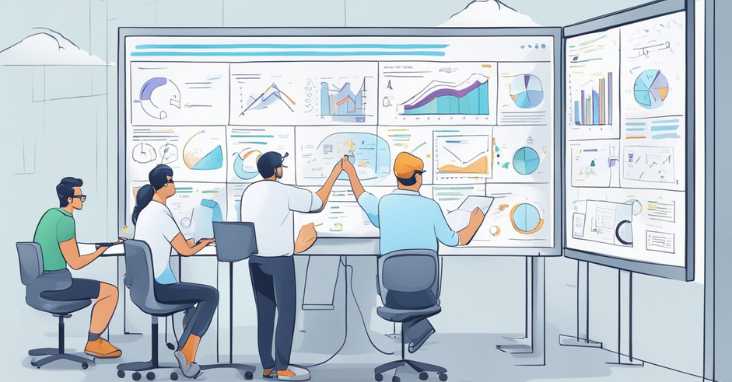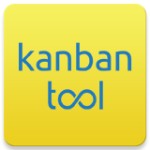What are the responsibilities and qualifications of a technical product manager? Tech Product Managers define strategy, roadmap, and feature definition for products, requiring tech expertise, leadership, market insight, and a relevant degree.
A technical product manager is a professional who bridges the gap between the technical and business worlds. This role requires a unique blend of skills and expertise, as it involves managing the development of products that are both technically complex and commercially viable. Technical product managers are responsible for overseeing the entire product development cycle, from ideation to launch, and ensuring that the final product meets the needs of both the business and the end-user.

To be a successful technical product manager, one must possess a diverse set of skills and expertise. This includes a deep understanding of technology and software development, as well as a strong business acumen and the ability to communicate effectively with stakeholders at all levels. Technical product managers must also be skilled in strategic planning and be able to balance the competing demands of different teams and departments. Overall, this role requires a highly analytical and detail-oriented approach, combined with excellent interpersonal and communication skills.
Key Takeaways
- Technical product managers bridge the gap between technical and business worlds, managing the development of complex products that meet the needs of both the business and end-users.
- Successful technical product managers possess a diverse set of skills, including technical expertise, business acumen, strategic planning, and strong communication skills.
- Technical product management requires an analytical and detail-oriented approach, as well as the ability to balance competing demands and communicate effectively with stakeholders at all levels.
Role Overview
Defining Technical Product Management
Technical Product Management (TPM) is a role that combines technical expertise with product management skills. TPMs are responsible for the strategy, roadmap, and feature definition of a product or product line. They work closely with cross-functional teams, including engineers, designers, and business stakeholders, to ensure that the product meets the needs of the market and the business.
TPMs are expected to have a deep understanding of the technology behind the product, as well as the market and customer needs. They are responsible for prioritizing features and ensuring that the product is delivered on time and within budget. TPMs also play a critical role in communicating the product vision and strategy to the wider organization.
Technical PM vs Product Manager
While TPMs and Product Managers (PMs) share many similarities, there are some key differences between the two roles. PMs are responsible for the overall success of a product, from strategy and roadmap to execution and launch. They work closely with cross-functional teams to ensure that the product meets the needs of the market and the business.
In contrast, TPMs focus more on the technical aspects of the product. They work closely with engineers to ensure that the product is built to a high standard and meets the technical requirements. TPMs also have a deep understanding of the technology behind the product and are responsible for ensuring that it is scalable, secure, and reliable.
Overall, TPMs play a critical role in the success of a product. They are responsible for ensuring that the product meets the needs of the market and the business, while also ensuring that it is technically sound. By combining technical expertise with product management skills, TPMs help to bridge the gap between engineering and the wider organization.
For more information on Technical Product Management, check out this article.
Core Responsibilities
As a Technical Product Manager, there are several core responsibilities that one must fulfill to ensure the success of their product. These responsibilities include product vision and strategy, roadmap planning and prioritization, cross-functional leadership, and stakeholder communication.
Product Vision and Strategy
One of the key responsibilities of a Technical Product Manager is to define and communicate the product vision and strategy. This involves understanding the market and customer needs, and aligning the product roadmap with the overall business objectives. The product vision and strategy should be clear, concise, and measurable, and should guide all product-related decisions.
To learn more about product vision and strategy, check out this article by Mind the Product.
Roadmap Planning and Prioritization
Another important responsibility of a Technical Product Manager is to create and maintain the product roadmap. This involves prioritizing features and initiatives based on customer needs, market trends, and business goals. The roadmap should be flexible and adaptable, and should be updated regularly to reflect changes in the market or business priorities.
To learn more about roadmap planning and prioritization, check out this article by ProductPlan.
Cross-Functional Leadership
A Technical Product Manager must also be a strong leader and collaborator. They must work closely with cross-functional teams, including development, design, marketing, and sales, to ensure that everyone is aligned and working towards the same goals. This involves setting clear expectations, providing guidance and support, and fostering a culture of innovation and collaboration.
To learn more about cross-functional leadership, check out this article by Forbes.
Stakeholder Communication
Finally, a Technical Product Manager must be an effective communicator, both internally and externally. They must be able to clearly articulate the product vision and roadmap, and communicate progress and updates to stakeholders and customers. This involves building strong relationships with key stakeholders, managing expectations, and being responsive to feedback and concerns.
To learn more about stakeholder communication, check out this article by ProductPlan.
Skills and Expertise
As a technical product manager, possessing a diverse skill set is essential to succeed in the role. This section will discuss the necessary skills and expertise that a technical product manager should have to excel in their position.
Technical Skills and Background
A technical product manager must have an in-depth understanding of both computer science and engineering. They should be able to comprehend technical jargon and communicate it effectively to non-technical stakeholders. Additionally, they should possess knowledge of software development methodologies and be able to work closely with engineering teams to ensure that products are developed and delivered on time.
Leadership and Communication Skills
Leadership and communication skills are crucial for a technical product manager. They must be able to lead cross-functional teams and communicate effectively with stakeholders, customers, and team members. A technical product manager should be able to inspire and motivate their team to achieve the best possible results.
Problem-Solving and Analytics
A technical product manager should have excellent problem-solving and analytical skills. They should be able to identify potential issues and provide solutions to overcome them. They should be able to analyze data and use it to make informed decisions about the product roadmap.
Overall, a technical product manager should possess a combination of technical expertise, leadership, communication skills, and problem-solving abilities. To learn more about the skills required for a technical product manager, check out this article.
Working with Development Teams

As a technical product manager, working with development teams is a crucial part of the job. It requires a deep understanding of engineering processes, technical knowledge, and effective communication skills. In this section, we will discuss some of the key aspects of working with development teams.
Understanding Engineering Processes
To work effectively with engineering teams, a technical product manager must have a solid understanding of software engineering processes. This includes knowledge of software development methodologies such as Agile, Waterfall, and DevOps. Understanding these processes can help the product manager provide clear direction to the engineering team and ensure that the product is developed efficiently.
Facilitating Technical Discussions
Technical product managers must be able to facilitate technical discussions between the engineering team and other stakeholders. This requires the ability to translate technical concepts into non-technical language and vice versa. The product manager must be able to ask the right questions to ensure that everyone is on the same page and that the product is being developed according to the requirements.
Quality Assurance and Testing
Quality assurance and testing are critical components of software development. A technical product manager must work closely with the quality assurance team to ensure that the product meets the required quality standards. This includes defining test cases, reviewing test results, and ensuring that any issues are addressed in a timely manner.
To learn more about working with development teams, check out this article. It provides valuable insights into the role of technical product managers and how they can work effectively with engineering teams.
Product Development Cycle

Product development cycle is the process of creating a new product from the initial idea to its launch. A technical product manager plays a vital role in this process by managing the product development process. The product development cycle includes three main stages: market research and user needs, design and prototyping, implementation and launch.
Market Research and User Needs
The first stage of the product development cycle is market research and user needs. This stage involves identifying the target market and understanding their needs and preferences. The technical product manager should conduct thorough market research to gather data on customer needs, competitors, and market trends. This information helps in creating a product that meets the customer’s needs and stands out in the market.
To conduct market research, the technical product manager can use various methods such as surveys, focus groups, and interviews. These methods help in gathering qualitative and quantitative data on customer needs and preferences. The technical product manager can also use external resources like industry reports and market research firms to gather information.
Design and Prototyping
The second stage of the product development cycle is design and prototyping. In this stage, the technical product manager works with the design team to create a product that meets the customer’s needs. The design team creates a prototype of the product that can be tested and refined before the final product is produced.
The technical product manager should ensure that the design team creates a product that is user-friendly, aesthetically pleasing, and meets the customer’s needs. The design team should also consider factors like cost, feasibility, and scalability when creating the product.
Implementation and Launch
The third stage of the product development cycle is implementation and launch. In this stage, the technical product manager works with the development team to implement the final product. The development team creates the final product based on the design and prototype created in the previous stage.
The technical product manager should ensure that the final product meets the customer’s needs and is of high quality. The technical product manager should also work with the marketing team to create a marketing strategy that promotes the product to the target market.
To learn more about the product development process, check out this article.
Strategic Planning

As a technical product manager, one of the most important responsibilities is strategic planning. This involves setting and tracking goals, analyzing market trends, and conducting competitor research to ensure the product’s success.
Setting and Tracking Goals
Setting clear and measurable goals is essential for any product’s success. Technical product managers must work closely with the development team to set achievable goals and ensure they align with the overall product strategy. These goals should be measurable and tracked regularly to ensure the product is on track to meet its targets.
To help with goal setting and tracking, many technical product managers use tools such as OKRs (Objectives and Key Results) or KPIs (Key Performance Indicators). These tools provide a clear framework for setting goals and measuring progress, allowing the product team to make data-driven decisions and adjust their strategy as needed.
Market Analysis and Competitor Research
Market analysis and competitor research are critical components of strategic planning for technical product managers. By staying up-to-date on market trends and understanding the competitive landscape, product managers can make informed decisions about the product’s direction and ensure it stays ahead of the competition.
Market analysis involves researching industry trends, customer needs, and potential opportunities for growth. This information can be gathered through a variety of sources, including industry reports, customer surveys, and market research tools.
Competitor research involves analyzing the strengths and weaknesses of competing products and identifying opportunities for differentiation. This information can be gathered through a variety of sources, including competitor websites, customer reviews, and industry publications.
By combining market analysis and competitor research with clear goal setting and tracking, technical product managers can develop a strong product strategy that drives success.
To learn more about strategic planning for technical product managers, check out this article.
Product Management Tools and Techniques

As a Technical Product Manager, there are several tools and techniques that can assist in managing products effectively. These tools and techniques can help in prioritizing tasks, tracking progress, and ensuring that the product meets the needs of the customers.
Agile and Scrum Frameworks
Agile and Scrum frameworks are widely used by Technical Product Managers to manage the development of products. These frameworks help in breaking down complex tasks into smaller, more manageable ones. They also provide a clear structure for managing tasks and tracking progress. Agile and Scrum frameworks are particularly useful in managing products that require frequent updates and changes.
A popular tool for managing Agile and Scrum projects is Jira. Jira is a project management tool that can be used to track tasks, bugs, and issues. It also provides a platform for collaboration between team members. For more information on Jira, check out this link.
Roadmapping Software
Roadmapping software is another tool that can be used by Technical Product Managers to manage products effectively. Roadmapping software can help in visualizing the development process and tracking progress. It can also help in identifying potential roadblocks and risks.
A popular roadmapping tool is Aha!. Aha! provides a platform for creating and managing product roadmaps. It also allows for collaboration and communication between team members. For more information on Aha!, check out this link.
Data Analysis and Reporting
Data analysis and reporting tools can assist Technical Product Managers in making data-driven decisions. These tools can help in identifying trends, tracking metrics, and measuring the success of the product.
One popular data analysis tool is Google Analytics. Google Analytics can be used to track website traffic, user behavior, and conversion rates. It also provides a platform for creating custom reports. For more information on Google Analytics, check out this link.
In conclusion, Technical Product Managers can benefit greatly from using various tools and techniques to manage products effectively. Agile and Scrum frameworks, roadmapping software, and data analysis and reporting tools are just a few examples of tools that can assist in managing products effectively.
Collaboration and Communication

Successful technical product managers understand the importance of collaboration and communication in achieving their goals. They work closely with different teams to ensure that their products meet the needs of customers and are marketed effectively. In this section, we will look at how technical product managers collaborate with sales and marketing teams as well as customer support to ensure the success of their products.
Working with Sales and Marketing Teams
Technical product managers work closely with sales and marketing teams to ensure that their products are marketed effectively. They provide these teams with the necessary technical information and insights to help them create effective marketing strategies. By collaborating with sales and marketing teams, technical product managers can ensure that their products are positioned correctly in the market and that they reach the right target audience.
One of the key ways that technical product managers collaborate with sales and marketing teams is through the creation of product messaging. They work together to create messaging that accurately communicates the features and benefits of the product to potential customers. This messaging is critical in convincing customers to buy the product.
Customer Support and Feedback
Technical product managers also work closely with customer support teams to ensure that their products meet the needs of customers. They gather feedback from customers and use this feedback to improve the product. By collaborating with customer support teams, technical product managers can ensure that their products are meeting the needs of customers and that any issues are addressed promptly.
One of the key ways that technical product managers gather feedback is through customer surveys. They use these surveys to gather information about customer satisfaction, product usage, and areas for improvement. This feedback is then used to make necessary changes to the product.
In conclusion, collaboration and communication are essential for technical product managers to succeed. By working closely with sales and marketing teams as well as customer support, they can ensure that their products meet the needs of customers and are marketed effectively. Technical product managers who prioritize collaboration and communication are more likely to create successful products that meet the needs of their customers.
(External resource: The Importance of Collaboration in Product Management)
Technical Challenges and Solutions

Addressing Technical Debt
One of the major challenges faced by technical product managers is managing technical debt. Technical debt refers to the accumulation of technical issues that arise as a result of shortcuts taken during the development process. These issues can slow down the development process and can lead to increased maintenance costs in the long run.
To address technical debt, technical product managers need to ensure that they have a clear understanding of the technical issues that need to be addressed. They must prioritize the issues based on their impact on the product and allocate resources accordingly. It is important to have a plan in place to address technical debt, which may require additional resources and time.
One solution to address technical debt is to implement automated testing and continuous integration. This helps to identify issues early in the development process, allowing them to be addressed before they become major problems. Technical product managers should also ensure that they have a clear process in place for code reviews and refactoring.
Security and Scalability Concerns
Another challenge faced by technical product managers is ensuring the security and scalability of the product. With the increasing number of cyber threats, it is important to ensure that the product is secure and can handle the expected load.
To address security concerns, technical product managers need to ensure that the product is built with security in mind from the beginning. This includes implementing secure coding practices, performing regular security audits, and staying up-to-date with the latest security threats and solutions.
Scalability concerns can be addressed by designing the product to be scalable from the beginning. This includes using a scalable architecture, implementing load balancing, and monitoring the performance of the product.
One solution to address both security and scalability concerns is to use cloud-based services. Cloud-based services can provide scalable infrastructure and security features, allowing technical product managers to focus on developing the product rather than managing infrastructure.
Here is a link to the Open Web Application Security Project (OWASP), which provides resources and guidance on web application security.
Career Development

As a technical product manager, there are various career development opportunities available to individuals who are interested in advancing their careers. This section will explore two of the most common career development opportunities for technical product managers.
Continuous Learning and Specialization
Continuous learning is an essential aspect of career development for technical product managers. To stay relevant in the field, it is crucial to keep up with the latest trends and technologies. Technical product managers can attend conferences, workshops, and training sessions to learn about new technologies and industry best practices. Additionally, online courses and certifications can help technical product managers to specialize in specific areas, such as data analysis or software development.
One excellent resource for online courses and certifications is Udemy. Udemy offers a wide range of courses in various fields, including product management, software development, and data analysis. By taking courses on Udemy, technical product managers can learn new skills and improve their existing ones.
Advancement Opportunities
Technical product managers can advance their careers by taking on more significant responsibilities and leadership roles. For example, they can become senior technical product managers or move into executive positions. To advance their careers, technical product managers need to demonstrate their leadership skills, strategic thinking, and ability to manage complex projects.
One way to demonstrate these skills is by obtaining a Project Management Professional (PMP) certification from the Project Management Institute (PMI). The PMP certification is a globally recognized certification that demonstrates a technical product manager’s ability to manage complex projects and lead teams effectively.
In conclusion, career development is essential for technical product managers who want to advance their careers. By continuously learning and specializing in specific areas, technical product managers can stay relevant in the field and improve their skills. Additionally, by taking on more significant responsibilities and leadership roles, technical product managers can advance their careers and achieve their professional goals.
Industry Trends and Future Outlook

Emerging Technologies
As technology continues to advance, the role of a technical product manager becomes increasingly important. One of the most significant trends in the industry is the emergence of new technologies. Technical product managers must stay up-to-date with the latest trends and innovations to ensure their products remain competitive.
One of the most exciting emerging technologies is blockchain. This technology has the potential to revolutionize many industries, including finance, healthcare, and supply chain management. Technical product managers must consider how blockchain could impact their products and whether it is worth integrating into their offerings.
Another emerging technology is the Internet of Things (IoT). With the rise of smart homes and connected devices, technical product managers must consider how their products can integrate with IoT devices to provide a seamless user experience.
Machine Learning and AI Integration
Machine learning and artificial intelligence (AI) are also significant trends in the industry. These technologies have the potential to improve product performance and user experience. Technical product managers must consider how they can integrate machine learning and AI into their products to remain competitive.
One area where machine learning and AI are particularly relevant is in data analysis. Technical product managers must consider how they can use these technologies to analyze user data and gain insights into user behavior. This information can then be used to improve product performance and user experience.
Another area where machine learning and AI are relevant is in the development of chatbots and virtual assistants. Technical product managers must consider how these technologies can be used to improve customer service and provide a more personalized experience for users.
In conclusion, technical product managers must stay up-to-date with the latest industry trends and emerging technologies to ensure their products remain competitive. By integrating emerging technologies such as blockchain and IoT and leveraging machine learning and AI, technical product managers can improve product performance and user experience. For more information on emerging technologies and industry trends, check out this source.
Frequently Asked Questions

What qualifications are necessary for a career as a Technical Product Manager?
To become a Technical Product Manager, candidates typically need a bachelor’s degree in a technical field such as computer science, engineering, or information technology. In addition, candidates should have experience in product management or a related field, as well as strong leadership and communication skills.
Which certifications are most beneficial for Technical Product Managers?
Certifications can demonstrate expertise and improve job prospects for Technical Product Managers. Some of the most valuable certifications include Certified Scrum Product Owner (CSPO), Agile Certified Product Manager (ACPM), and Pragmatic Marketing Certified (PMC).
How do the roles and responsibilities of a Technical Product Manager differ from a traditional Product Manager?
While traditional Product Managers focus on the market and customer needs, Technical Product Managers also need to have a deep understanding of the technical aspects of the product. They work closely with engineers and developers to ensure that the product is technically feasible and meets the necessary specifications.
What are the key technical skills required for a Technical Product Manager?
Technical Product Managers should have a solid understanding of software development, as well as experience with programming languages and databases. They also need to be familiar with project management tools and have experience with Agile development methodologies.
Can you recommend any literature or resources for aspiring Technical Product Managers?
One highly recommended resource is “Cracking the PM Interview” by Gayle McDowell, which provides practical advice and tips for landing a job as a Product Manager. Another valuable resource is the Product Manager HQ website, which offers a wide range of articles, podcasts, and courses on product management.
What are common interview questions for a Technical Product Manager position?
Interview questions for Technical Product Managers often focus on their technical skills and experience, as well as their ability to communicate and lead a team. Some common questions include “How do you prioritize features?”, “What is your experience with Agile development?”, and “How do you ensure that the product meets technical specifications while also meeting customer needs?”.
For more information on Technical Product Management, you can visit the Association of International Product Marketing and Management (AIPMM) website at https://www.aipmm.com/.















